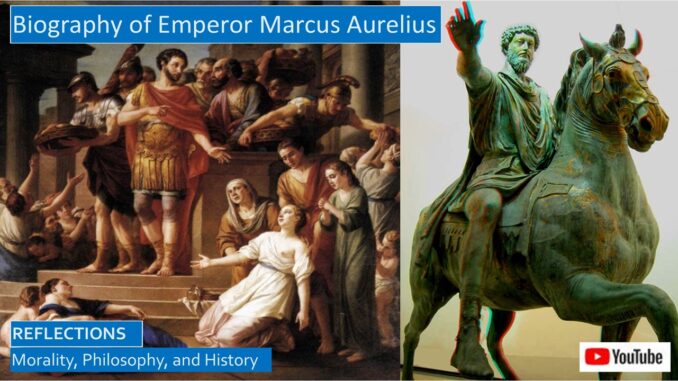
One of our most popular videos asks these questions: Did Marcus Aurelius persecute Christians? Was Marcus Aurelius a friend, or a foe, of Christianity?
Marcus Aurelius, Friend, or Foe, or Both, of Christianity?
http://www.seekingvirtueandwisdom.com/marcus-aurelius-blog-1-friend-or-foe-or-both-of-christianity/
https://youtu.be/-uQxq1O9xSY
To better answer these questions, we are reflecting on the biographies of Marcus Aurelius to become better acquainted with this Roman Emperor and Stoic Philosopher. The answer to this question is that history, like relationships, is complicated.
Because his Meditations contains so many Stoic sayings that parallel the Scriptures and teachings of Christianity, modern Christians deeply desire that he was a friend to Christians. What we have discovered that ancient Christians also want to bring Marcus Aurelius into the Christian camp.
Powerpoint Script with Book Links:
https://www.slideshare.net/BruceStrom1/biography-of-marcus-aurelius-stoic-philosopher-and-roman-emperor
This YouTube video: https://youtu.be/nvWYu8ofhCA
PREVIOUS BLOGS AND VIDEOS
Marcus Aurelius was the last of the Five Good Emperors of Rome. We have reflected on the prior emperors of Rome, in particular these five good emperors. Marcus Aurelius and the provincial governors mainly followed the precedents set by prior emperors when conducting the Christian Persecutions. Will also examine the history of the Christian persecutions through the reign of Marcus Aurelius, and the Mediations of Marcus Aurelius.
Roman Emperors Before Marcus Aurelius
https://seekingvirtueandwisdom.com/roman-emperors-before-marcus-aurelius/
https://youtu.be/6i–hVIpg1k
Marcus Aurelius Blog 2, Others will be irritating, but not I!
http://www.seekingvirtueandwisdom.com/marcus-aurelius-blog-2-others-will-be-irritating-but-not-i/
Marcus Aurelius Blog 3 Genuine Friends Don’t Keep Scorecards
http://www.seekingvirtueandwisdom.com/marcus-aurelius-blog-3-genuine-friendships-have-no-scorecards/
Marcus Aurelius Blog 4 Be critical of yourself, be gracious towards your neighbor
http://www.seekingvirtueandwisdom.com/marcus-aurelius-blog-4-be-critical-of-yourself-be-gracious-towards-your-neighbor/
Marcus Aurelius Blog 5 Seeing life’s misfortunes through the eyes of our neighbor
http://www.seekingvirtueandwisdom.com/marcus-aurelius-blog-5-seeing-lifes-misfortunes-through-the-eyes-of-our-neighbor/
Marcus Aurelius: Meditations: Stoic View of Life
https://youtu.be/0qHpReZYhv4
The biographies of Marcus Aurelius also contain valuable information on the ordinary life of Romans, and the ancient warrior culture during the time of the Five Good Emperors. We will also reflect on the biography of his son and successor, Commodus.
Ordinary Life for Romans Under Stoic Emperor Marcus Aurelius
https://seekingvirtueandwisdom.com/ordinary-life-for-romans-under-stoic-emperor-marcus-aurelius/
Ancient Warrior Societies, Blog 1, The Warrior Ethos of Ancient Greece, Rome, and Israel
https://seekingvirtueandwisdom.com/ancient-warrior-societies-blog-1-the-warrior-ethos-of-ancient-greece/
Ancient Warrior Culture, Ancient Greece, Rome, and Israel
https://youtu.be/7QAZ_s6zw4E
Ancient Warrior Societies, Blog 2, Greek and Roman Armies and Navies
https://seekingvirtueandwisdom.com/ancient-warrior-societies-blog-2-greek-and-roman-armies-and-navies/
Ancient Warrior Societies, Blog 3, World of the Old Testament
https://wp.me/pachSU-hI
https://seekingvirtueandwisdom.com/ancient-warrior-societies-blog-3-world-of-the-old-testament/
Ancient Warfare in Ancient Greece, Rome, and Israel. Did Joshua Massacre Pagans in the Promised Land?
https://youtu.be/9xKxqAbJ2qY
THE YOUNG MARCUS AURELIUS
Verus, the father of Marcus, died when he was three. His mother did not remarry, in his Meditations he praised “her reverence for the divine, her generosity, her inability not only to do wrong but even to conceive of doing it. And the simple way she lived, not in the least like the rich.” He was raised by his rich grandfather, but Emperor Hadrian was a frequent visitor and became fond of the young Marcus, taking interest both in his education and involving him in the Roman priesthood.
Since Hadrian had no heirs, he adopted as his successor Marcus Aurelius. But soon before his death, he decided to also adopt a relative, Antoninus Pius, as his son and immediate successor. Hadrian insisted that Antoninus Pius would, in turn, adopt as his sons both young Marcus Aurelius and Lucius Versus, and Marcus Aurelius would succeed him as emperor, guaranteeing a smooth succession for two generations. Marcus likely moved into the palace sometime in his youth, likely after Hadrian had put him in the line of succession. The Roman Empire under these good emperors was at its peak, ranging from Syria to Spain, and from England to Egypt.
The historian Will Durant states, “Never was a boy so persistently educated. He was attached in boyhood to the service of temples and priests; he committed to memory every word of the ancient and unintelligible liturgy,” and this may be overstated, “and though philosophy later shook his faith, it never diminished his sedulous performance of the old exacting ritual.” Marcus studied under seventeen tutors, including Stoic philosophers, jurists, grammarians, and rhetoricians.
From an early age, Marcus was a serious Stoic philosopher, as Will Durant says, “At the age of twelve he took on the rude cloak of a philosopher, slept on a little straw strewn over the floor, and long resisted the entreaties of his mother to use a couch. He was a Stoic before he became a man.”[1]
The historian McLynn recorded some Stoic lessons Marcus learned from his tutors. “Apollonius taught that nothing mattered except the purity of Stoic doctrine and that a man should be the same in all circumstances, indifferent both to worldly success and to pain, illness, or the loss of a child.”
“Severus believed in the freedom of speech, equality before the law and enlightened rulers. He preached the love of family, truth and justice, the value of helping others, the joys of sharing, and the merits of optimism.”
In his philosophy, Marcus Aurelius was inspired by the works of Epictetus but did not study the works of Seneca.
“Maximus taught these lessons: You must master yourself, keep your personality in balance and combine dignity and grace; you should be cheerful in all circumstances, particularly when ill, and do your job without complaining; you should be generous, charitable, honest, sincere and forgiving.”
“Marcus said that Maximus was a man who always spoke without malice, but who said exactly what he thought. He was imperturbable and unshockable, was never apprehensive and never taken aback; he was never rash, hesitant, bewildered or at a loss, never hung back from a task, was never downcast or fawningly hypocritical, never obsequious, but not aggressive or paranoid either.”[2]
His teacher Rusticus taught him, in the words of McLynn, that “to live the life of a philosopher was not a matter of showy austerity, wearing hair shirts, sleeping rough or wearing a philosopher’s cloak,” “but simply knowing how to live well; in theory, an emperor could do that as well as a shepherd.”[3] He would later preside over the martyrdom of St Justin.
THE FIVE GOOD EMPERORS REIGN
The Five Good Emperors were selected for adoption by ability.
Nerva, died of natural causes 96-98 AD
Trajan, Roman Empire at its peak 98-117 AD
Hadrian pulled back and consolidated 117-138 AD
Hadrian picked next two sets of emperors through adoption.
Antoninus Pius, not ambitious, competent 138-161 AD
Marcus Aurelius, last of the good emperors 161-180 AD
Lucius Verus, co-emperor 161-169 AD
MARCUS AURELIUS AND ANTONINUS PIUS, CO-RULERS
Emperor Antoninus Pius persuaded Marcus to break his current engagement to marry his daughter Faustina in the year 145 AD. Although Faustina gained a reputation for infidelity, Marcus never complained, thanking the gods for a wife who was “so obedient, so warm-hearted, so artless.” She bore him fifteen children, although only six survived to adulthood.[4]
Marcus was a virtual co-emperor with Antoninus Pius for the final thirteen and a half years of his reign. He served as consul and actively participated in drafting legislation for the Senate, ensuring a smooth transition on the passing of Antoninus.
Did Marcus Aurelius or Antoninus Pius read a remarkable Apology to the Emperor addressed and delivered to them from St Justin the Martyr? He sought to show how both the Old Testament and the Greco-Roman moral philosophers point to and are fulfilled by the coming of Christ into the world. He may have gone too far by attacking the moral bankruptcy of the myths surrounding the gods and the deification of emperors, by Roman standards. History is silent on whether either emperor saw this apology. We do know that Fronto, a tutor of Marcus, criticized the incestuous banquets of the Christians, showing a misunderstanding of Christianity.[5]
St Justin Martyr, First Apology to the Emperor
http://www.seekingvirtueandwisdom.com/st-justin-martyr-blog-1-first-apology-to-the-emperor-2/
https://youtu.be/s1Gz3pwImO8
St Justin Martyr traveled to Rome during the reign of Antoninus Pius and started a school, Tatian was one of his students. During the reign of Marcus Aurelius, after a debate with the Cynic philosopher Crescens, he was denounced to the authorities and martyred when they refused to sacrifice to the gods.[6] Since the prosecutor of the case, Rusticus, was an old friend and mentor of Marcus Aurelius, it is likely he was informed about the case.[7]
Marcus Aurelius was only absent from the palace for two nights during the reign of Antoninus Pius.[8] Will Durant stated that when Emperor Pius, in declining health, “desired a colleague to share the government with him, he named Marcus only, and left to Lucius the empire of love. On the death of Antoninus, Marcus became sole emperor; but remembering Hadrian’s wish, he at once made Lucius Verus his full colleague and gave him his daughter Lucilla in marriage. At the outset of his reign, as at the end, the philosopher erred through kindness.”
LAST GOOD EMPEROR: MARCUS AURELIUS
Marcus Aurelius began his reign auspiciously, with acclaim. Will Durant noted that “he paid the Senate every courtesy.” “All Italy and all the provinces acclaimed him as Plato’s dream come true: the philosopher was king.” Although he insisted that Lucius Verus be named co-emperor, Marcus had the greater authority since he was chief priest of Rome.
But Will Durant also criticized his rule: “Marcus Aurelius was not a great statesman: he spent too much of the public funds in cash gifts to the people and the army,” gave free corn to more citizens, “provided frequent and costly games, and remitted large sums in unpaid taxes and tributes.”[9]
Marcus Aurelius faced these major challenges during his reign:
- Major invasion from Parthian Persia.
- Major rebellion in Germania. The German tribesmen crossed the Alps, as Hannibal had done many centuries before.
- Outbreak of devastating Antonine Plague, 10% mortality rate.
In hindsight, Durant can say this, but the truth is our Emperor faced far more serious challenges than did most emperors before him. Early in his reign, he faced major military attacks, first in Parthian Persia, then from formerly friendly German tribes that threatened to invade the Italian peninsula. When the army returned from Parthia, they brought with them the plague, which scholars estimate decimated ten percent of the population in the empire. At its worst, the plague was killing two thousand people a day in Rome, including many of the aristocracy. The cities and the Roman army suffered the most.[10]
Who was to blame for the plague? We remember how, in the Iliad, the priest Chryses prayed to Apollo to send a plague upon the Greeks for refusing to release his daughter Chryseis. Likewise, many Romans, fearful of the plague, suspected the Christians, who refused to sacrifice to the gods but were rather hostile towards the gods, may have caused the plague by angering the gods. Although the most vigorous persecutions were in the provinces, there were persecutions in Rome as well, including the martyrdom of St Justin the Martyr.[11]
Iliad, Blog 3, Visiting the Enemy Camp, Greeks vs Indians
http://www.seekingvirtueandwisdom.com/iliad-blog-3-visiting-the-enemy-camp-greeks-vs-indians/
The Warrior Cultures of the Iliad and the American Indian, Bravely Visiting the Enemy Camp
https://youtu.be/ynIx-AVI2f8
What challenges did Marcus Aurelius face in the first year of his reign? First was one of the worst floodings of the Tiber River in Rome, destroying many buildings, drowning many animals, leaving famine in its wake. Second, Parthia in Persia opened hostilities against Rome.[12] And third, though it was seen as a blessing at the time, Marcus’ wife Faustina gave birth to twins. Although the omens were favorable, she dreamed she was giving birth to serpents, and their birthday was the same as the murderous Emperor Caligula. Commodus was the twin who survived.[13]
TROUBLE IN PERSIA, PARTHIA REBELS
In prior conflicts, Roman Emperors had invaded Persia to defeat Parthia. Emperor Trajan had invaded, making the kingdom of Armenia a Roman province. But his successor Hadrian decided to retreat to more defensible borders, granting Armenia independence, making them a client kingdom that paid Rome tribute. While Hadrian visited the provinces, the aging Antoninus Pius ruled from Rome, also maintaining the status quo. Then Marcus Aurelius, praised as a philosopher king, assumed the duties of emperor.
The aggressive King Vologases IV of Persia was not impressed, a decade earlier he had seized the Roman client states of Mesena in lower Mesopotamia. He conquered the Roman client state of Armenia, massacring a Roman legion. Then the Parthians invaded Syria, defeating the Roman governor, who fled. Simultaneously, there was also trouble in Britain and Germania.
Since Antoninus Pius wanted to keep Marcus Aurelius under his thumb, possibly to assure his security as ruler, neither he nor Verus, for all their education, had any military training. Also, you cannot gain battlefield experience in a peaceful empire. Since Lucius Verus was younger and in better health, he was sent to the East to command the troops in person, he was assigned the crack legions and the best equipment available.
But Lucius took his time, hunting and carousing as he went, at last finding his way into Antioch which would be the Roman military base for the next four years.[14] Will Durant notes that in Antioch Lucius met an oriental beauty named Panthea. “Lucius saw her, and, like Gilgamesh, forgot when he was born. He abandoned himself to pleasure, to hunting, at last to debauchery, while the Parthians rode into terror-stricken Syria.”[15]
Fortunately, Verus had one strength, he was a good delegator, he allowed the Roman army to fight and win the war. In Rome, Marcus Aurelius monitored the situation and decided on a two-front strategy. On one front, he sent the best generals of the Roman army to Syria, and on the other front, he sent his daughter Lucilla, who had been promised to Lucius Verus in marriage, to the east, where they were married in pomp and ceremony in Ephesus. She had recently turned fourteen and was eligible for marriage.
Both fronts of this struggle were a success. The invasion of Parthia in 164 AD was meticulously planned. The army discipline had grown lax, they were put through a boot camp and retrained. Verus did participate in the planning of the invasion but left the execution to the generals of the two invading Roman legions. On the second front, Lucilla acquired the title Augusta, and the couple soon bore three children in succession,[16] although history is silent on whether she banished Panthea.
Will Durant summarizes the war: “Marcus made no comment on Lucius, but sent to Avidius Cassius, second in charge to Lucius’ army, a planned campaign whose military excellence helped the general’s own ability not only to drive the Parthians back across Mesopotamia but to plant the Roman standards once more in Seleucia and Ctesiphon,” which are cities near Babylon on the Tigris and Euphrates Rivers. “This time the two cities were burned to the ground.” “Lucius returned from Antioch to Rome and was awarded a triumph, which he magnanimously insisted that Marcus should share.”[17]
MARCUS AURELIUS, EMPEROR IN ROME
In a prior reflection, I was hoping that the reason Christians were persecuted in Rome during the reign of Marcus Aurelius was that he was distracted fighting the Germanic tribes. But unfortunately, including when he was de facto emperor in the last years of the reign of Antoninus Pius, Marcus Aurelius ruled as residing emperor in Rome for about two decades.
During his time in Rome, Marcus Aurelius was an able administrator and ruler. Marcus attended the Senate sessions, sometimes suggesting legislation. He decreed that the Senate hear appeals from decisions of the consuls. He was prudent in state expenditures and discouraged false accusations. Sometimes he was personally involved in hearing cases and appeals.
Marcus Aurelius, living up to his Stoic ideals, had these three interests, according to Anthony Birley:
- Manumission or liberation of slaves.
- Appointment of guardians for orphans and minors.
- Selection of councilors to administer local communities in the provinces.
Antoninus Pius had made a master liable for the murder of his slave, which was remarkable for the ancient world. The law was interpreted liberally to free slaves when possible. Sometimes Marcus Aurelius forced a cruel master to sell his slave to another kinder master.[18]
Over the centuries and millennia, the Old Testament prophets, rabbis, Christian fathers, and Stoics, in particular Seneca, slowly improved the lot of the lowest class of laborers, which were the slaves in the ancient world.
Teachings about Slavery in the Bible, the Stoics, and by the Early Church Fathers
http://www.seekingvirtueandwisdom.com/teachings-about-slavery-in-the-bible-and-by-the-early-church-fathers/
https://youtu.be/poyvJajCXnE
Marcus Aurelius was not fond of gladiatorial contests. They were quite popular with the populace, so the rulers dared not abolish them. Even St Augustine was complaining about these bloody contests long after the Roman Empire became Christian.
St Augustine’s Confessions: Mother Monica, Concubine, Marriage, and Philosophy, Books 6 & 7
https://seekingvirtueandwisdom.com/st-augustines-confessions-mother-monica-concubine-marriage-and-philosophy-books-6-7/
https://youtu.be/AjGbBozIReY
Will Durant said that Marcus Aurelius “forbade extravagant renumeration to actors and gladiators, restricted” “the expenditures of cities on games, required the use of foiled weapons in gladiatorial contests, and did all that sanguinary custom would allow to banish death from the arena.”[19]
An unintended consequence of a decree to reduce the cost of these gladiatorial games, reducing the number of gladiators by reducing for their fees, was the substitution of other condemned men, such as Christians, to die in the arena.[20]
GERMAN TRIBES REBEL AND INVADE NORTHERN ITALY
Soon after the victory over Parthia, the Germanic tribes on the northern frontier put aside their differences, formed a secret alliance, and rebelled against Rome. Perhaps they wanted to take advantage of Roman losses from the plague.
Will Durant summarizes the start of the conflict: the Germanic tribes “overwhelmed a Roman garrison of twenty-thousand men.” “Some made their way over the Alps, had defeated every army sent against them, were besieging Aquileia, near Venice, and were threatening Verona, and were laying waste the rich fields of northern Italy. Never before had the German tribes moved with such unity or so closely threatened Rome.”
But the historian Anthony Birley comments that part of their motivation was pressure from wilder Germanic tribesmen to the far north and that many of them invaded merely to settle, not to raid and plunder.
Durant continues, “Marcus acted with surprising decisiveness. He put away the pleasures of philosophy and determined to take the field in what he foresaw would be the most momentous of Roman wars since Hannibal. He shocked Italy by enrolling policemen, gladiators, slaves, brigands, and barbarian mercenaries into legions depleted by war and pestilence. Even the gods were conscripted” with sacrifices to protect Rome.[21]
When both Marcus Aurelius and Lucius Verus departed for the front, Lucius fell ill from food poisoning, dying a few days later. Some scholars debate whether he died from smallpox or plague. Despite their differences, Marcus gave him a state funeral, deifying him.[22]
Will Durant summarizes this military struggle: “Despite a hundred defeats, the fertile barbarians were growing stronger, the barren Romans weaker.” Perhaps Durant here is revealing to us more about his sensibilities than he reveals Roman history. But he correctly states that “Marcus saw that it was now a war to the death, that one side must destroy the other or go under. Only a man schooled in the Roman and Stoic sense of duty could have transformed himself so completely from a mystic philosopher into a competent and successful emperor.”[23]
This war with the initially unified Germanic tribes lasted a long, bloody seven years. This war was fought on a front from the Danube to the Black Sea. The war was brutal, Marcus built a column in Rome celebrating his victory showing captured warriors being beheaded, the torching of villages, rape of women, seizures of cattle, and killing of infants. But these brutal reprisals were only exacted against the most recalcitrant foes, Marcus Aurelius preferred to treat surrendering tribes with magnanimity, sometimes resettling them, sometimes permitting the warriors to serve in Roman legions in other theaters of war.
Calling this a battle against barbarians oversimplifies the struggle, these Germanic tribes had become more and more Romanized as they interacted with Rome ever since Emperor Augustus campaigned there. Marcus Aurelius and the army played the long game, striking only when advantageous, defeating the tribes one by one. Although the Germanic tribes fought more effectively by adopting some Roman tactics, their warrior culture demanded that their armies attack the strongest part of the Roman line, making them easier to defeat.[24]
WHAT IS AN ABORTED COUP AMONG FRIENDS?
One of the most bizarre and puzzling episodes in ancient history was the attempted coup by Marcus’ trusted general Avidius Cassius, whom he posted in the East while he was busy fighting the Germanic tribes. He heard of the coup while arranging the final peace settlement with a major Germanic tribe, and had to hurry the negotiations, to Rome’s detriment, to deal with this crisis.
Avidius Cassius did not respect Marcus Aurelius. As the historian McLynn puts it, “Although claiming to find Marcus the best of men, Avidius appears to have despised him for weakness. In his view, Marcus tried to make a virtue of being merciful in the wrong contexts: he habitually pardoned the unpardonable. As for his Stoic philosophy, that was at best an eccentricity and at worst an abomination. Who needed an emperor who meditated on philosophical principles instead of the interests of the state? It was not philosophy Rome needed, but practical wisdom and, above all, the sword.”[25]
Does this condemnation of stoicism ring true? Perhaps there is a grain of truth in this, and perhaps Marcus wanted to be too lenient with Cassius, but what we do know is because of his magnanimity and his living his Stoic virtues in practice, Marcus had very few enemies in the Senate and in the army, but perhaps he had one in his army and one enemy in his household.
Since we care as much about learning his Stoic virtues as his history, we will let Cassius Dio tell this story, and both of our modern historians, McLynn and Birley, use this account as a primary source for this fantastic history.
Cassius Dio tells us that his trusted general Cassius was “an excellent man and the sort one would desire to have as an emperor.” But Cassius was “deceived by Faustina” who, seeing that her husband had fallen ill and” was near death,” was afraid that the throne might fall to some outsider, as Commodus was both too young and also rather simple-minded.” Our modern historians claim she sought to protect the throne for her son, but we must ask ourselves, Was she concerned about her son’s fitness for the throne?
Cassius Dio continues, “Faustina secretly induced Cassius to make his preparations so that, if anything should happen to her husband, he might obtain both her and the imperial power.” Just then “a message came that Marcus was dead,” “and immediately, without waiting to confirm the rumor, he laid claim to the throne.” Although “he soon learned the whole truth, he did not change his course,” “and was preparing to seize the throne.”
Marcus, on being informed of his uprising, to dispel rumors, addressed his troops:
“Fellow-soldiers: I have come before you, not to express indignation, but to bewail my fate. For why become angry at Heaven, which is all-powerful? But it is necessary, perhaps, for those who meet with undeserved misfortune to indulge in lamentations; and that is now my case. Is it not dreadful that we become engaged in war after war? Is it not horrible that we are even involved in civil war? And are not both these evils surpassed in dreadfulness and horror by the discovery that there is no such thing as loyalty among men?”
Marcus continues his speech: “There is only one thing I fear, fellow soldiers, for you shall be told the whole truth, and that is, that either Cassius will kill himself because ashamed to come into our presence or that someone else will do so upon learning that I am already setting out against him.” “For then I should be deprived of a great prize both of war and of victory, a prize such as no human being has ever yet obtained. And what is this prize? To forgive a man who has wronged one, to remain a friend to one who has transgressed friendship, to continue faithful to one who has broken faith.”
Cassius Dio continues, Hopefully, I can “settle this affair and show to all mankind that there is a right way to deal even with civil wars.”
“This is what Marcus both said to the soldiers and wrote to the senate, never abusing Cassius in any way save that he constantly termed him ungrateful. Nor, indeed, did Cassius ever utter or write anything insulting to Marcus.”
“While Marcus was preparing for the civil war, the death of Cassius was reported to him at the same time with the news of many victories over various barbarians. Cassius” “had encountered Antonius, a centurion, who suddenly wounded him in the neck.” When he died, “they cut off Cassius’ head and sent it to the emperor.”
Cassius Dio continues, “Marcus, upon reaching the provinces that had joined in Cassius’ uprising, treated them all very leniently and did not put anyone to death, whether obscure or prominent.” “This same emperor neither slew nor imprisoned nor put under guard any of the senators who had been associated with Cassius. Indeed, he did not so much as bring them before his own court, but merely sent them before the senate, as though charged with some other offense, and set a definite day for their trial. Of the others, he executed a very few.”
What about Faustina, the empress who was involved in the coup against her husband? Cassius Dio tells us, “About this time Faustina also died, either of the gout, from which she suffered, or in some other manner,” perhaps suicide, “in order to avoid being convicted of her compact with Cassius. And yet Marcus destroyed all the papers that were found in her chests without reading any of them, in order that he might not learn even the name of any of the conspirators who had written anything against him and so be reluctantly forced to hate them. Verus” “found papers among the effects of Cassius and destroyed them, remarking that this course would probably be most agreeable to the emperor.”
Cassius Dio then says, “In his great grief over the death of Faustina, Marcus wrote to the Senate asking that no one of those who had co-operated with Cassius should be put to death.” He said: “May it never happen, that any one of you should be slain during my reign either by my vote or by yours.”
Cassius Dio concludes, “So pure and excellent and god-fearing did he show himself from first to last; and nothing could force him to do anything inconsistent with his character, neither the wickedness of their rash course nor the expectation of similar uprisings as the result of his pardoning these rebels. So far, indeed, was he from inventing any imaginary conspiracy or concocting any tragedy that had not really occurred, that he actually released those who had, in the most open manner, risen against him and taken up arms both against him and against his son,” “and he put none of them to death.” “Hence, I verily believe that if he had captured Cassius himself alive, he would certainly have spared his life.”[26]
LAST DAYS OF MARCUS AURELIUS
Marcus Aurelius returned to Rome triumphantly. Historians criticize him for not attempting to expand the frontiers of the Roman Empire, but that was what he was planning to do when he once again embarked with his armies to the northern frontiers, he was going to expand the northern borders to make the Empire more defensible over the long run.
Summarizing his life, Cassius Dio tells us that Marcus Aurelius “did not display many feats of physical prowess; yet he had developed his body from a very weak one to one capable of the greatest endurance. Most of his life he devoted to beneficence, and that was the reason, perhaps, for his erecting a temple to Beneficence on the Capitol.”
Cassius Dio continues, “He himself, then, refrained from all offenses and did nothing amiss whether voluntarily or involuntarily; but the offenses of the others, particularly those of his wife, he tolerated, and neither inquired into them nor punished them. So long as a person did anything good, he would praise him and use him for the service in which he excelled, but to his other conduct he paid no attention; for he declared that it is impossible for one to create such men as one desires to have, and so it is fitting to employ those who are already in existence for whatever service each of them may be able to render to the State.”[27]
In the latter days of his reign, Marcus Aurelius attempted to provide his son Commodus with as good a Stoic education as he had received, but his son was the worst student imaginable. However, he still appointed him as co-regent in the last years of his reign, rather than adopting a more competent colleague to succeed him.[28] Upon his father’s death, Commodus called off the Germanic Wars, quickly negotiated a peace settlement, and returned to Rome to carouse, torment senators and ordinary Romans, and fight with gladiators in the arena.[29] Like Nero, he was eventually assassinated by a conspiracy of both his Praetorian Guard and several senators. Like Nero, his reign was followed by another year of six emperors, destabilizing the Roman Empire. Commodus destroyed the Senate, he came close to destroying the Roman Empire, he destroyed his father’s legacy.
Yt
DISCUSSING THE SOURCES
Many lecturers on the Five Good Roman Emperors complain about the lack of ancient historians and biographers who are the equal of Plutarch, but that does not mean that historical sources do not exist, but that they are less reliable, and must be cross-checked and verified as much as possible by modern historians.
The biography by Frank McLynn is over five hundred pages long, and half of his book is on extensive background discussions. We are also using this biography for our videos on the Roman Emperors preceding Marcus Aurelius, videos on Christian Persecutions, Ordinary Life in Roman times, the Ancient Warrior Cultures in Roman times, and a biography of his son and cruel successor, Commodus. He also discusses the historical background of the struggles in Parthia and Germania.
The biography by Anthony Birley is also informative, he has a different perspective. He has excellent appendices extensively discussing the ancient sources used to reconstruct the life of Marcus Aurelius and the Christian persecutions, which is the source for this our ending discussion.
Although it is dated, written in 1944, Will Durant’s history, Caesar and Christ, also is a rich source of history and background, plus he is very quotable, an excellent writer. Like the ancient historians, he draws moral lessons from history.
Marcus Aurelius wrote his Meditations while fighting the Marcomannic Wars in Germania. We liked the translation in the Dover Thrift Edition, we found the translation in the Stoic Six-Pack on Amazon to be unintelligible. The Meditations is one of the classic texts of ancient stoicism and contains several references to Christianity.
The most treasured ancient source is Cassius Dio, who was a Roman Senator, he had access to the official records of the Senate. He wrote an eighty-volume history of Rome, starting from its founding and the years of the Roman Republic, though Emperor Severus, shortly after Marcus Aurelius.
Unfortunately, for the last twenty books in the series, there remain only fragments and the meager abridgement of John Xiphilinus, a Byzantine monk from the eleventh century. His histories are available online, they are more complete for the period during and after the Marcomannic Wars in Germania.[30]
There is also the ambitious Historia Augusta, where multiple ancient authors recount Roman history starting with Emperor Hadrian. Much of this history is fabricated and should be cross-checked with other sources when possible.
One quirky source is the two-way correspondence between Marcus Aurelius and his tutor Fronto, which continued into his years as emperor. Although he was not Marcus’ most influential tutor, they are another direct mirror into the mind of Marcus Aurelius, they take up two volumes in the classical Loeb library.
Other minor sources are legal compilations such as the Code of Justinian, works by the orator Aelius Aristides, comments by the physician Galen, Herodian, and of course, coins, inscriptions, and papyri.[31]
The Great Courses, now Wondrium, has many lecture series on Roman history. The late historian Rufus Fears has an inspiring modern oral history of the Great Romans. He agrees with me that whatever praises history may shower on perhaps the only philosopher king in history, they are overshadowed by Marcus Aurelius’ un-Stoic failure to prevent that monster who was his son, Commodus, from ascending to the throne on his death.
The lectures on the Greco-Roman moral philosophers by Luke Timothy Johnson, which were not migrated to Wondrium, were life-changing to me, they are what led me to read the Stoic philosophers, realizing their deep influence on both the Western and Christian traditions, and also Platonism and philosophy in general.
In addition, we will be discussing the other sources used for the history of Christian Persecutions in our video pondering: Did the Stoic Emperor Marcus Aurelius Actively Persecute Christians?
In addition, we will be discussing the other sources used for the history of Christian Persecutions in our video pondering: Did the Stoic Emperor Marcus Aurelius Actively Persecute Christians?
[1] Will Durant The Story of Civilization, Volume 3, Caesar and Christ, (New York: Simon and Schuster, 1961, 1944), p. 426.
[2] Frank McLynn, Marcus Aurelius, A Life, pp. 47-48.
[3] Frank McLynn, Marcus Aurelius, A Life, p. 65.
[4] Frank McLynn, Marcus Aurelius, A Life, p. 386.
[5] Anthony Birley, Marcus Aurelius, A Biography (New York: BT Batsford, 2000, 1966), pp. 111-112.
[6] https://en.wikipedia.org/wiki/Justin_Martyr
[7] Frank McLynn, Marcus Aurelius, A Life, p. 299.
[8] Anthony Birley, Marcus Aurelius, A Biography, pp. 90-91, 103-104.
[9] Will Durant, Caesar and Christ, p. 426-427 and Anthony Birley, Marcus Aurelius, A Biography, pp. 116-117.
[10] https://en.wikipedia.org/wiki/Antonine_Plague
[11] Anthony Birley, Marcus Aurelius, A Biography, pp. 152-154.
[12] Frank McLynn, Marcus Aurelius, A Life, pp. 127-129 and Anthony Birley, Marcus Aurelius, A Biography, pp. 120-121.
[13] Anthony Birley, Marcus Aurelius, A Biography, pp. 119.
[14] Frank McLynn, Marcus Aurelius, A Life, pp. 137-143 and Anthony Birley, Marcus Aurelius, A Biography, pp. 121-123.
[15] Will Durant, Caesar and Christ, p. 428, also recounted by Frank McLynn, Marcus Aurelius, A Life, pp. 157.
[16] Frank McLynn, Marcus Aurelius, A Life, pp. 157-160.
[17] Will Durant, Caesar and Christ, p. 428.
[18] Anthony Birley, Marcus Aurelius, A Biography, pp. 133-138.
[19] Will Durant, Caesar and Christ, p. 428.
[20] Frank McLynn, Marcus Aurelius, A Life, p. 186.
[21] Will Durant, Caesar and Christ, p. 429 and Anthony Birley, Marcus Aurelius, A Biography, pp. 148-149.
[22] https://en.wikipedia.org/wiki/Lucius_Verus
[23] Will Durant, Caesar and Christ, p. 431.
[24] Frank McLynn, Marcus Aurelius, A Life, pp. 327-362 and Anthony Birley, Marcus Aurelius, A Biography, pp. 174-175.
[25] Frank McLynn, Marcus Aurelius, A Life, p. 376.
[26] Cassius Dio, Roman History, (Loeb Classical Library, 1927, originally 129 AD+), Book 72, Chapters 23-29, at https://penelope.uchicago.edu/Thayer/E/Roman/Texts/Cassius_Dio/72*.html and Frank McLynn, Marcus Aurelius, A Life, pp. 377-382 and Anthony Birley, Marcus Aurelius, A Biography, pp. 184-190.
[27] Cassius Dio, Roman History, Book 72, Chapter 34, from https://penelope.uchicago.edu/Thayer/E/Roman/Texts/Cassius_Dio/72*.html
[28] Anthony Birley, Marcus Aurelius, A Biography, pp. 197-198 and Frank McLynn, Marcus Aurelius, A Life, pp. 400-403.
[29] Frank McLynn, Marcus Aurelius, A Life, pp. 417-425.
[30] https://en.wikipedia.org/wiki/Cassius_Dio and https://penelope.uchicago.edu/Thayer/E/Roman/Texts/Cassius_Dio/home.html
[31] Anthony Birley, Marcus Aurelius, A Biography, pp. 226-231.

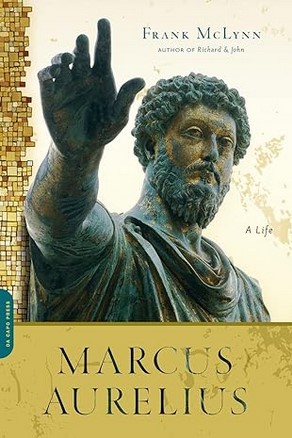
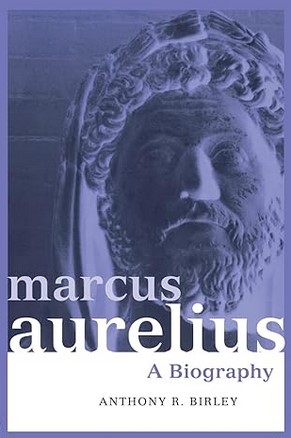
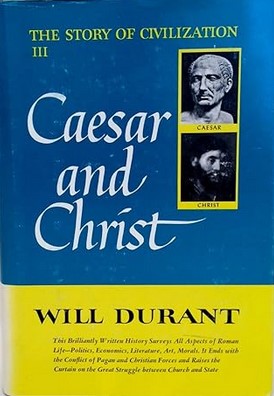
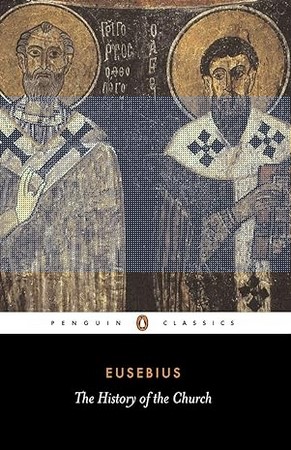
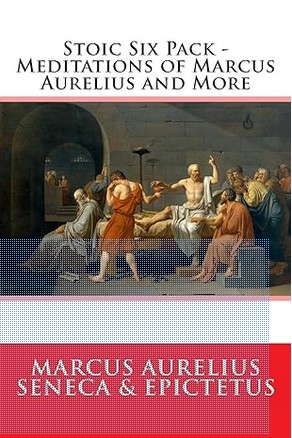
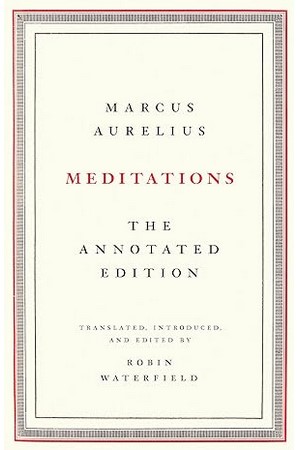
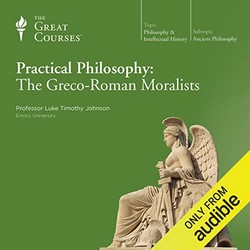


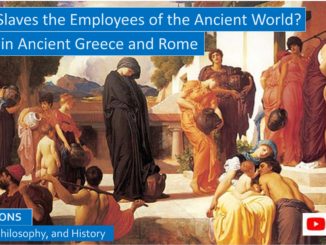
3 Trackbacks / Pingbacks